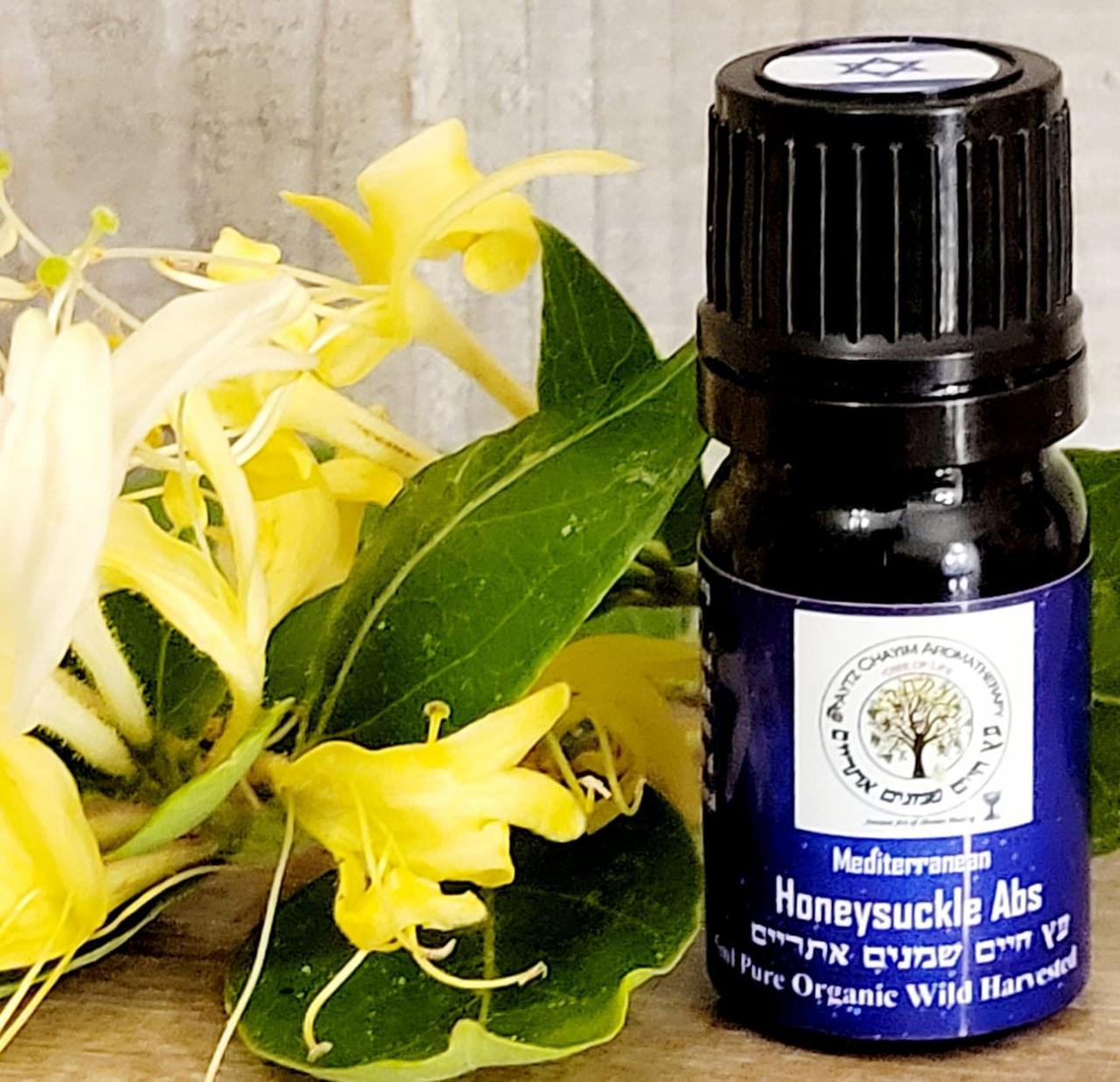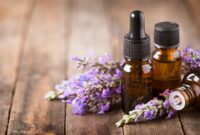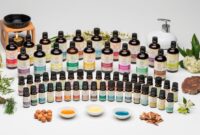Embark on a fragrant journey with honeysuckle essential oil, an aromatic treasure that has captivated cultures for centuries. Distilled from the delicate blossoms of honeysuckle plants, this enchanting oil offers a captivating blend of therapeutic properties and alluring scents.
Throughout history, honeysuckle has adorned gardens and entwined itself in tales of love and folklore. Its essential oil, meticulously extracted, carries the essence of this beloved flower, promising a wealth of benefits for the body, mind, and spirit.
Introduction
Honeysuckle essential oil is a natural oil extracted from the flowers of the honeysuckle plant, known scientifically as Lonicera japonica. The extraction process involves steam distillation, where steam is passed through the flowers to release the volatile compounds that make up the essential oil.Honeysuckle
essential oil has a long history of use in traditional medicine, particularly in Chinese herbalism. It is believed to have various therapeutic properties, including antibacterial, antiviral, and anti-inflammatory effects. The oil is also known for its sweet, floral aroma, which has made it popular in aromatherapy and perfumery.
Cultural Significance
Honeysuckle has held cultural significance in various societies throughout history. In Chinese culture, the flower is associated with love, happiness, and fidelity. It is often depicted in traditional paintings and literature as a symbol of enduring relationships. In some Native American cultures, honeysuckle is believed to possess spiritual properties and is used in ceremonies and rituals.
Botanical Profile
Honeysuckle essential oil is derived from various species of the genus Lonicera, belonging to the Caprifoliaceae family. These climbing or twining shrubs are characterized by their fragrant flowers and are native to temperate regions of the Northern Hemisphere.
Honeysuckle plants typically feature opposite, ovate to lanceolate leaves and produce clusters of tubular flowers in a wide range of colors, including white, yellow, pink, and purple. The flowers, which bloom in spring and summer, are highly attractive to pollinators and produce a sweet, intoxicating fragrance.
Cultivation and Harvesting
Honeysuckle plants prefer well-drained, fertile soil with a pH range of 6.0 to 7.0. They require full sun to partial shade and can be propagated through cuttings, layering, or seeds. Honeysuckle plants can grow vigorously and may require support structures, such as trellises or arbors.
The flowers of honeysuckle plants are harvested during their peak bloom, typically in the morning or evening when the fragrance is strongest. The flowers are carefully handpicked or mechanically harvested and then processed through steam distillation to extract the essential oil.
Chemical Composition

Honeysuckle essential oil is a complex blend of over 100 chemical constituents, each contributing to its unique therapeutic properties.
The primary components of honeysuckle essential oil are:
- Linalool:A monoterpene alcohol known for its calming, sedative, and analgesic effects.
- Benzyl benzoate:An ester with expectorant and antispasmodic properties, making it beneficial for respiratory conditions.
- Benzyl acetate:An ester with a sweet, floral aroma that has calming and anti-inflammatory effects.
- Caryophyllene:A sesquiterpene with anti-inflammatory and antioxidant properties.
- Farnesene:A sesquiterpene with antibacterial and antifungal properties.
Therapeutic Properties and Applications
The therapeutic properties of honeysuckle essential oil are derived from its chemical constituents and include:
- Calming and Sedative:Linalool and benzyl acetate contribute to the calming and sedative effects of honeysuckle essential oil, making it beneficial for stress, anxiety, and sleep disorders.
- Expectorant and Antispasmodic:Benzyl benzoate acts as an expectorant, helping to clear mucus from the respiratory tract, while its antispasmodic properties relieve coughing and wheezing.
- Anti-inflammatory:Caryophyllene and benzyl acetate have anti-inflammatory properties, making honeysuckle essential oil useful for reducing inflammation in the body, including skin conditions and joint pain.
- Antibacterial and Antifungal:Farnesene and other constituents provide antibacterial and antifungal properties, making honeysuckle essential oil effective against various microorganisms.
- Antioxidant:Caryophyllene and other compounds in honeysuckle essential oil exhibit antioxidant properties, helping to protect cells from damage caused by free radicals.
Extraction Methods

Honeysuckle essential oil is extracted through various methods, each with its advantages and disadvantages. The choice of method depends on factors such as yield, quality, and cost.
The most common extraction methods for honeysuckle essential oil are:
Solvent Extraction
- Advantages:High yield, cost-effective, suitable for large-scale production.
- Disadvantages:Can leave solvent residues, may alter the oil’s aroma and therapeutic properties.
Steam Distillation
- Advantages:Produces a high-quality oil with a pure aroma, preserves the oil’s therapeutic properties.
- Disadvantages:Lower yield compared to solvent extraction, can be time-consuming and energy-intensive.
Cold Pressing
- Advantages:Preserves the oil’s delicate aroma and flavor, does not require heat or solvents.
- Disadvantages:Low yield, can be expensive, suitable only for certain plant materials.
Therapeutic Properties

Honeysuckle essential oil possesses a wide range of therapeutic properties, making it a valuable addition to any aromatherapy kit. Scientific research supports its potential benefits for skin health, respiratory issues, and emotional well-being.
Skin Health
Honeysuckle essential oil is known for its anti-inflammatory and antibacterial properties. It can soothe skin irritations, reduce redness, and promote wound healing. Its antioxidant properties help protect the skin from environmental damage, while its emollient qualities moisturize and soften dry, cracked skin.
Respiratory Issues
Honeysuckle essential oil has expectorant and decongestant properties. It can help clear mucus from the airways, making it beneficial for respiratory conditions such as colds, coughs, and bronchitis. Its anti-inflammatory effects can also reduce airway irritation and inflammation.
Emotional Well-being
Honeysuckle essential oil is believed to have calming and uplifting effects on the mind. It can help reduce stress, anxiety, and depression. Its sweet, floral scent is said to promote relaxation and create a sense of peace and tranquility.
Applications
Honeysuckle essential oil finds versatile applications in aromatherapy, skincare, and various other domains. Its captivating aroma and therapeutic properties make it a sought-after ingredient in natural remedies and personal care products.
In aromatherapy, honeysuckle oil is diffused to promote relaxation, alleviate stress, and create a calming atmosphere. It is also used in massage blends to soothe sore muscles and reduce tension.
Skincare, Honeysuckle essential oil
Honeysuckle essential oil possesses remarkable skincare benefits. Its antibacterial and anti-inflammatory properties make it effective for treating acne, blemishes, and other skin concerns. It is also known to brighten the skin, reduce the appearance of wrinkles, and promote a youthful glow.
DIY Skin Serum for Glowing Skin:
- 5 drops honeysuckle essential oil
- 10 ml carrier oil (such as jojoba or almond oil)
- Combine the ingredients in a small glass bottle and shake well. Apply a few drops to cleansed skin twice daily.
Safety Considerations

While honeysuckle essential oil offers numerous benefits, it’s crucial to be aware of potential risks and precautions to ensure safe usage.
Honeysuckle essential oil is generally safe for topical application when diluted in a carrier oil, but certain precautions should be observed:
Contraindications
- Pregnant or breastfeeding women should avoid using honeysuckle essential oil as it may trigger uterine contractions or affect milk production.
- Individuals with sensitive skin should perform a patch test before applying honeysuckle essential oil topically.
- People with known allergies to honeysuckle or related plants should not use this essential oil.
Interactions
- Honeysuckle essential oil may interact with certain medications, such as blood thinners, as it contains compounds that can affect blood clotting.
- It’s advisable to consult a healthcare professional before using honeysuckle essential oil if you’re taking any medications.
Proper Usage Guidelines
- Always dilute honeysuckle essential oil in a carrier oil before topical application, as undiluted oil can cause skin irritation.
- Start with a low dilution (1-2 drops per 10 ml of carrier oil) and gradually increase as needed.
- Avoid applying honeysuckle essential oil to broken or irritated skin.
- If you experience any adverse reactions, such as skin irritation, redness, or itching, discontinue use and consult a healthcare professional.
Comparisons

Honeysuckle essential oil possesses unique properties and applications that distinguish it from other essential oils. While it shares some similarities with other oils, its specific benefits and uses set it apart.
Here is a comparison of honeysuckle essential oil with other essential oils that have similar properties or uses:
Comparison with Jasmine Essential Oil
Both honeysuckle and jasmine essential oils are known for their floral and sweet aromas. They are often used in perfumery and aromatherapy for their calming and relaxing effects.
However, honeysuckle essential oil has a stronger and more intense aroma than jasmine oil. It is also more stimulating and energizing, while jasmine oil is more calming and sedative.
Comparison with Ylang-Ylang Essential Oil
Honeysuckle and ylang-ylang essential oils share a sweet and floral aroma. They are both used in aromatherapy for their relaxing and aphrodisiac effects.
However, honeysuckle essential oil has a more delicate and subtle aroma than ylang-ylang oil. It is also less stimulating and more calming, while ylang-ylang oil is more stimulating and energizing.
Comparison with Lavender Essential Oil
Honeysuckle and lavender essential oils are both known for their calming and relaxing effects. They are often used in aromatherapy to promote sleep and reduce stress.
However, honeysuckle essential oil has a sweeter and more floral aroma than lavender oil. It is also more stimulating and energizing, while lavender oil is more calming and sedative.
Research and Advancements
Ongoing research continues to explore the potential therapeutic applications of honeysuckle essential oil. Scientists are investigating its effects on various health conditions and seeking to uncover new insights into its medicinal properties.
One promising area of research focuses on the oil’s potential in combating antibiotic-resistant bacteria. Studies have shown that honeysuckle essential oil exhibits antibacterial activity against several strains of bacteria, including those that have become resistant to conventional antibiotics.
Anti-inflammatory Properties
Research also suggests that honeysuckle essential oil possesses anti-inflammatory properties. Studies have demonstrated its ability to reduce inflammation in animal models, indicating its potential use in treating inflammatory conditions such as arthritis and inflammatory bowel disease.
Neuroprotective Effects
Additionally, preliminary research has explored the neuroprotective effects of honeysuckle essential oil. Studies have shown that it may help protect nerve cells from damage caused by oxidative stress, which could have implications for neurodegenerative diseases like Alzheimer’s and Parkinson’s.
Future Directions
Ongoing research is expected to further elucidate the therapeutic potential of honeysuckle essential oil. Future studies will likely focus on investigating its efficacy in clinical settings, exploring its interactions with other compounds, and developing novel formulations to enhance its bioavailability and therapeutic effects.
Conclusion: Honeysuckle Essential Oil
Honeysuckle essential oil, derived from the fragrant flowers of Lonicera japonica, stands as a therapeutic powerhouse with a wide range of benefits. Its anti-inflammatory, antimicrobial, and antioxidant properties make it an effective natural remedy for various ailments.
For topical applications, honeysuckle oil can alleviate skin irritation, soothe burns and wounds, and promote skin health. Its calming and sedative effects make it beneficial for reducing stress, promoting relaxation, and improving sleep quality.
Recommendations for Safe and Effective Use
- Always dilute honeysuckle essential oil with a carrier oil, such as jojoba or coconut oil, before applying it to the skin. A dilution ratio of 2-3 drops of essential oil per 10 ml of carrier oil is recommended.
- Avoid using honeysuckle essential oil if you are pregnant, breastfeeding, or have sensitive skin.
- Store the oil in a cool, dark place away from direct sunlight to preserve its potency.
Closing Summary
As we conclude our exploration of honeysuckle essential oil, let us remember its multifaceted nature. From its soothing touch on the skin to its uplifting aroma that calms the soul, this oil has earned its place as a versatile companion in our quest for well-being.
Whether you seek relief from physical ailments, emotional solace, or simply a fragrant escape, honeysuckle essential oil stands ready to embrace you with its healing embrace. Embrace its transformative power and discover the myriad ways it can enhance your life.
FAQs
Is honeysuckle essential oil safe for use during pregnancy?
It is generally recommended to avoid using honeysuckle essential oil during pregnancy due to insufficient research on its safety.
Can I apply honeysuckle essential oil directly to my skin?
Honeysuckle essential oil is highly concentrated and should be diluted with a carrier oil, such as jojoba or coconut oil, before applying it to the skin.
How often can I use honeysuckle essential oil in a diffuser?
For optimal benefits, use honeysuckle essential oil in a diffuser for no more than 30 minutes at a time, and allow for breaks between uses.


